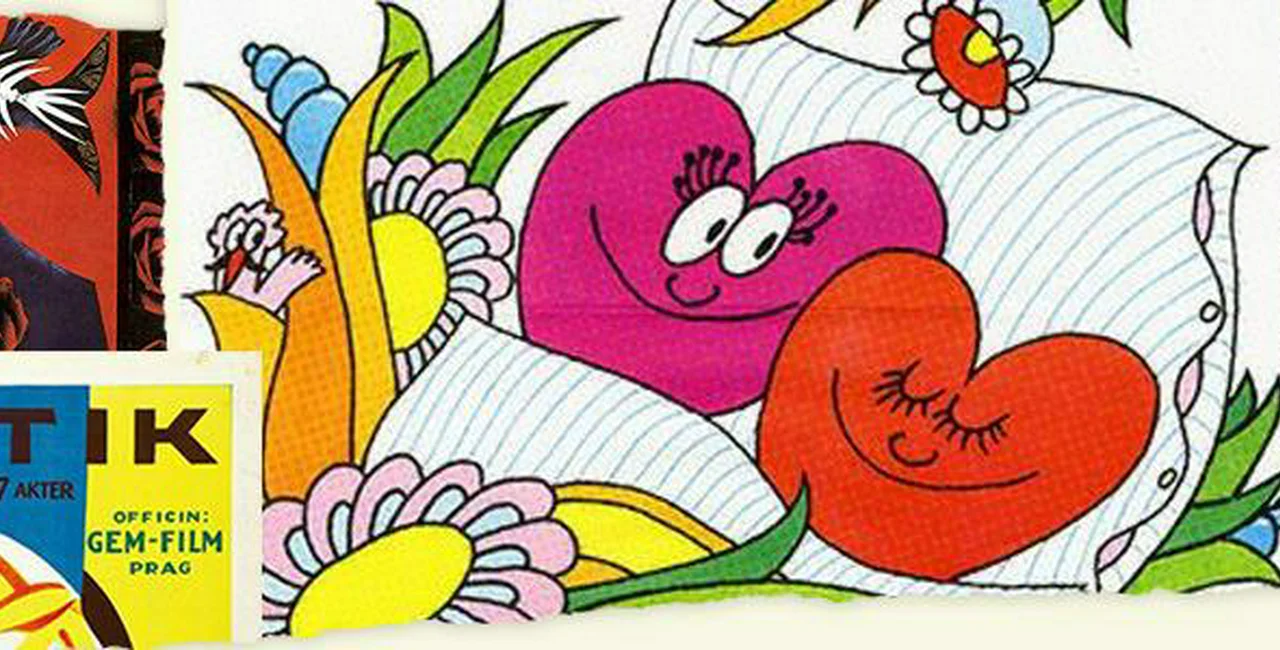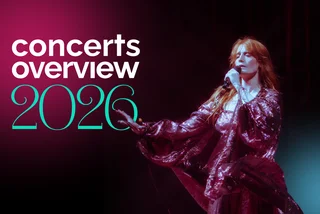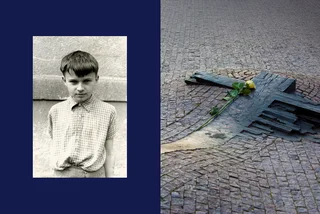Valentine’s Day is here and whether you mark the occasion with wine and roses or drowning your single sorrows, there’s no better time to grab a box of chocolates and queue up a good Czech film. From fairy tales to period pieces and black-and-white classics, these movies, selected by Czech film insiders, feature some of the sexiest, most heart-melting scenes in the country’s cinematic history:
Actress Jana Plodkova picks this honeymoon romp from 1983 starring a real-life husband and wife duo who go on a road trip as her favorite romance film of all time. “Libuše Šafránková and Josef Abrham turn romance into comedy. Let’s go back to the past when a train, a canoe, and a tent were just enough.” Catch Ms. Plodkova on stage in Prague at Divadlo Na zábradlí.
Zdeněk Bláha, dramaturge for Days of European Film, a festival showcasing the best of European cinema, now in its 25th year, says this romantic series (1982) about a young doctor and his love troubles was such a favorite in his family that his nephew was named for the protagonist. He calls it “a Czech classic bringing in the love troubles of the main hero throughout various stages of his life, but also reflecting the state of the Czech society at different times.”
This 1939 screwball comedy directed by Martin Frič and considered a highlight of Czech film before the New Wave of the 1960s, was chosen by Robert Tamchyna, director of Prague’s Viola Theatre who calls it “a symbol of First Republic cinematography” as well as a “universal iconic picture of the salon comedy genre.”
World-famous Czech director Miloš Forman based this 1965 tale of a young innocent factory girl in search of love on events from his own life. Nominated for an Academy Award, it was chosen by Mr. Bláha as a significant example of the Czech New Wave.
No list of Czech films would be complete without mentioning a fairy tale, or pohadka, a genre which had its heydey in the 1950s and 60s as a colorful form of escapism during the grey communist era. This 1970s adaptation of the Hans Christian Andersen story, a visual feast with an atmospheric soundtrack and melancholy aura, was chosen by Barbora Golatová, director of the Days of European film festival, because: “the most romantic love is unfulfilled.”
Sales Lead | High-Performance Computing & AI

Pavel Jiras, film historian and author of the new book Barrandov and Foreign Film, selects a 1987 drama based on an Ota Pavel memoir. The plot centers on the psychological crisis of a quiet Bohemian family man in the years preceding the Nazi invasion: “It reflects the basic poetics of the Czech country. Beautiful nature where one can retreat in the toughest times. And that is the most important—escape to beloved nature because it gives a person the opportunity to find beauty in themselves. What would the river be if there was no sound of a harmonica behind the water?”
Apparently, King Charles IV built his gothic stronghold to the southwest of Prague not only to house the crown jewels but as the ultimate man cave, no women allowed. At least according to this campy 1974 musical comedy, chosen by Ms. Golatová, which sees the Holy Roman Emporer’s young wife attempt to sneak in for the night.
Kamil Spáčil is the director of Febiofest, Prague’s largest international film festival. His pick, he says, “radiates comfort, summer, and holidays.” The 1976 holiday romance follows the unlikely pairing of a young psychologist with a local cowherd. “Every time I see it, I’m in a good mood,” Mr. Spáčil tell us.
Mr. Bláha also chooses this visually intriguing 1970 allegorical comedy about a single woman who becomes involved with an arrogant, ill-mannered man who literally devours everything put before him while metaphorically eating up her dignity. “A masterpiece by Ester Krumbachova, the famous screenwriter, costume designer, and close Vera Chytilová collaborator.”
Actress, director, and 11:55 theatre company member Tereza Volánková says of this 2003 Oscar-nominated WWII drama starring Anna Geislerová as nurse and resistance-fighter hiding out in a mountain village: “The story does not start with enormous love, but gradually we develop a very simple and real love. Against the backdrop of the love story, there is also a crucial period in our history. A gem from the subject to the direction to the work of the great cast.”
Fans of the 2000 David Ondříček comedy Samotáři (Loners) will appreciate that film’s 1996 predecessor starring Tatiana Vilhelmová as a village girl who escapes life in the provinces for a shot at happiness in Prague. Beloved by Mr. Bláha and a legion of fans for its Jan P. Muchow soundtrack and a legendary scene filmed at Prague 1 pizzeria Kmotra.
Another timeless classic of Czech cinema, Mr. Bláha says this tale of love between young Hana and Filip, students who are sent to harvest hops during a hot summer, is one of the most successful Czech musicals of all time, an answer to West Side Story (sometimes even called “Hop Side Story”) with enough retro costumes, hairdos, and bossa nova numbers to thrill fans of sixties style.
Ms. Golatová also names Postřižiny (1980), by the great Czech director Jiří Menzel among her favorite romantic films. Based on the novel of the same name by Czech literary giant Bohumil Hrabal, the story is set in a brewery in a small Bohemian village between wars and combines humor and tenderness in typical Hrabal style.
Another choice from Mr. Bláha is this 1929 silent film by Gustav Machatý, a groundbreaking work for its exploration of a young woman’s sexuality. It is the predecessor to the director’s Ecstasy the 1933 Heddy Lamar picture which gained worldwide notoriety as the first film to feature a female orgasm and nudity.












 Reading time: 5 minutes
Reading time: 5 minutes 


 French
French
 Italian
Italian
 Bulgarian
Bulgarian





















